- It has been more than 20 years since the first steps were taken towards the foundation of social cannabis clubs in Spain. The legal persecution to which they have been subjected since then has made their path a trying one. Today, after many successes, the struggle with the authorities is being carried out with ever-greater resolve.
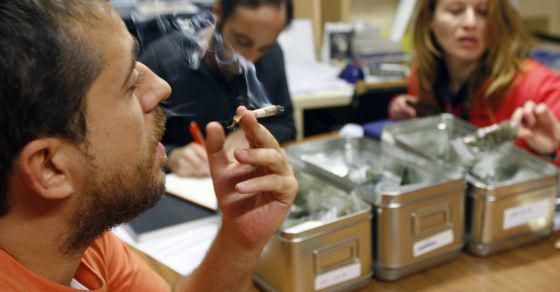
It might be said that social cannabis clubs in Spain formally arrived on the scene in 2001, with the “Cannabis Tasters Club of Barcelona.” Since then thousands of Spaniards have legally supplied themselves with marijuana, exercising control over the quality of the plant. The number of these clubs has surged over time, as well as the fight to regulate them and to allow their users to enjoy the advantages of belonging to these cannabis associations. Nevertheless, the struggle by these clubs and their activists goes much further back, to 1993 and the ARSEC, in Barcelona.
This Catalonian group wanted to put an end to prohibition to consume in public places, but also to dispel the legal insecurity surrounding growing, and to find a way to legally provision itself. Thus, the ARSEC sent a letter to the Antidrug Office in order to inquire whether the growing of cannabis for personal consumption by a group of adult users would constitute a crime. The answer was clear: it could not be considered criminal conduct.
With that answer in hand the group decided to plant marijuana to meet the needs of 100 people. The crops, however, were seized. The Provincial Court went on to acquit the people responsible, before the case reached the Supreme Court on appeal.
Following this example, another association, Kalamudia (Bilbao) sowed 600 plants designated for 200 people, while embracing the slogan proposed by the State Coordinator for the Normalisation of Cannabis: “I stand against prohibition.” The Bilbao plantation, although it had the support of regional and local leaders from multiple political parties, had to be harvested soon thereafter (though without legal consequences).
It was at that time when the case of the ARSEC would come to a head, with a prison sentence, which was suspended, and economic sanctions levied on those responsible. This was a sentence that, according to former FAC President Martin Barriuso “was clearly politically motivated, and contradicting the jurisprudence” of the Supreme Court. Two years later the Basque association decided to take the path of civil disobedience and to plant again.
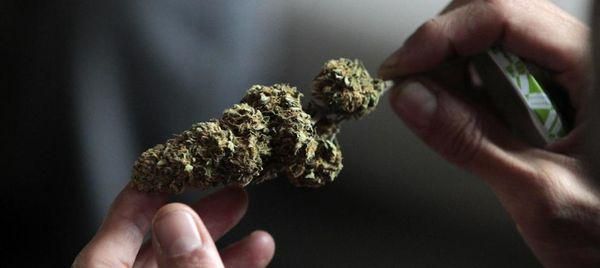
This, in spite of the legal contradictions, spurred other groups to do the same thing, as the regional government of Andalusia even commissioned a legal report on the possibility of supporting establishments where cannabis could be legally acquired. Martín Barriuso, in documentation provided by the Federation of Cannabis Associations explains (FAC), explains that the report drafted by Juan Muñoz and Susana Soto, with the Andalusian Institute of Criminology, both professors of Criminal Law at that time, “placed, in 1999, the first stones of what is now considered a foundation for the normalisation of marijuana.”
Both reached the conclusion that, in Spain, establishments could be opened for the production of cannabis or other plants for personal use, as long as this was done by a specific group of people, of legal age, who were previous consumers, and the substance was for personal use, without any pursuit of profit. They argued that in Spain a Dutch-style coffee shop model was not possible, but facilities restricted to marijuana smokers were, which were not to be indiscriminately opened to the public.
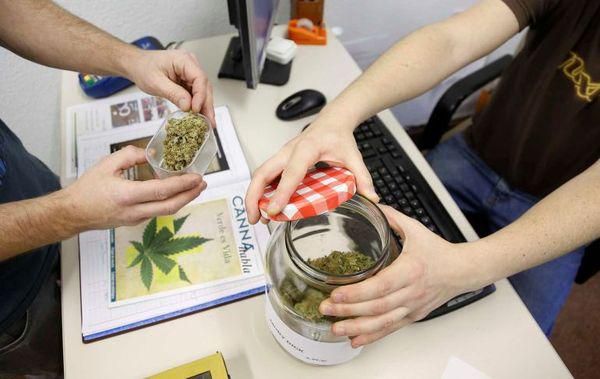
Many associations, meanwhile, which had described themselves as “for the study of cannabis” began to identify themselves as groups “of cannabis users,” and to mention in their bylaws the possibility of creating private spaces for social consumption and growing. In 2001 the Cannabis Tasters Club of Barcelona (CCCB) was a pioneer among Spanish clubs in this regard.
Over time the Andalusian report and the sentences issued hitherto laid the foundations for subsequent judicial decisions, which began to consider the crops of some cannabis clubs legal. However, in 2005 four members of the Pannagh Association–leading figures among Spanish users–were arrested and their crops seized. The case was ultimately thrown out, and the 17 kg of crops confiscated were returned to the members (an unprecedented decision).
But the story of Spain's cannabis clubs includes some dark chapters. The Pannagh Association itself was raided again in 2011. Several of its members were arrested, among them Martín Barriuso himself, then president of the club, and the association had to close its doors. Until not long ago some its members were still facing charges, until their acquittal by the Provincial Court of Biscay. This was another triumph (despite the tough times suffered) for cannabis activism, but a tentative one, as the Public Prosecutor has filed an appeal before the Supreme Court, with that decision still pending.
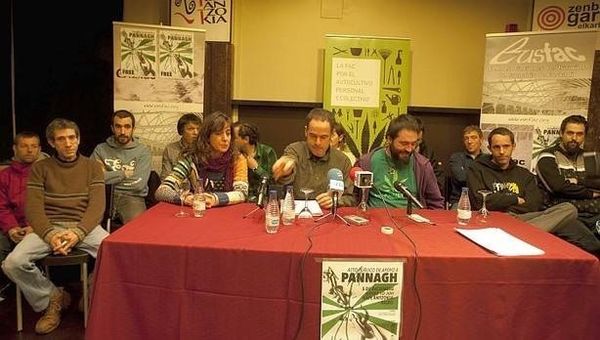
A little while before what happened to Pannagh, in December of 2010 the Social Cannabis Clubs model was presented in the European Parliament before leaders of the European Commission's Anti-drug Unit. Since then the struggle for regulation has been more intense than ever, scoring various triumphs in Spain.
In 2014 the number of cannabis associations in all of Spain reached 600. In the middle of May the debate intensified, the Navarrese parliament accepted a citizen initiative to regulate these associations, and the law for the regulation was passed in December.
In the Basque Country San Sebastián joined the movement. In order to mitigate the hazards related to marijuana dependency, the city council approved an ordinance to control and manage the clubs. The legality of this measure, however, was questioned, an appeal filed with the Government of the Basque Country. In Catalonia, meanwhile, Gerona became the first city to approve such a municipal ordinance.
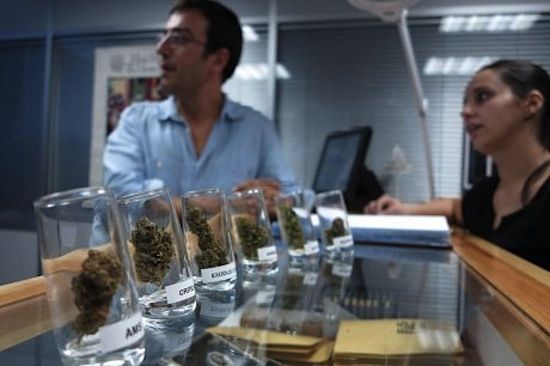
A few days after the big news spread about Pannagh's acquittal, its case became grounds for optimism for cannabis activists and the line to follow to keep on fighting, without fear, to publicise their cause, and for the effective regulation of user clubs, so that all of them, anywhere in Spain, can overcome the legal limbo in which they still languish, even after the long way they have come.
The latest news in this sphere, unfortunately, is discouraging. The case of the Ebers Association of Hemp Studies and Users came to the fore when in November of 2011 police officers seized several kilos of marijuana during a raid on their headquarters in Deusto, after which the Public Prosecutor’s Office asked for several years of prison for its leadership, in addition to fines. The Provincial Court of Biscay acquitted the club, ruling that their activity was not for profit.
This past July the Criminal Division of Spain's Supreme Court accepted the appeal that the Public Prosecutor had filed against this decision, sentencing five of its members for violating public health. Other accusations were excluded from the sentence, like that of illicit association, although the decision still represents a harsh blow to cannabis activism, as it criminalises the associations and may have an impact on upcoming judicial decisions and the future of these groups.
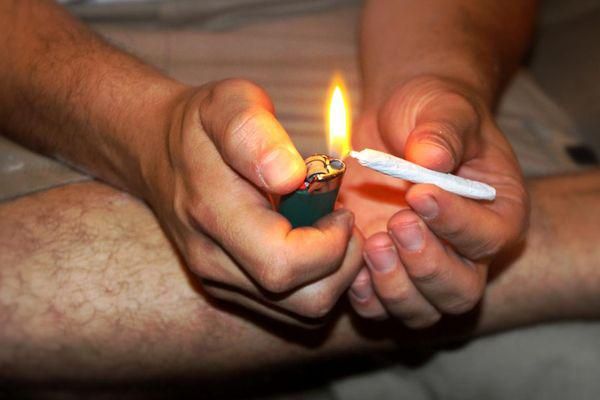


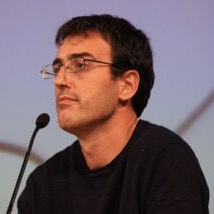
Comments from our readers
There are no comments yet. Would you like to be the first?
Leave a comment!Did you like this post?
Your opinion about our seeds is very important to us and can help other users a lot (your email address won't be made public).